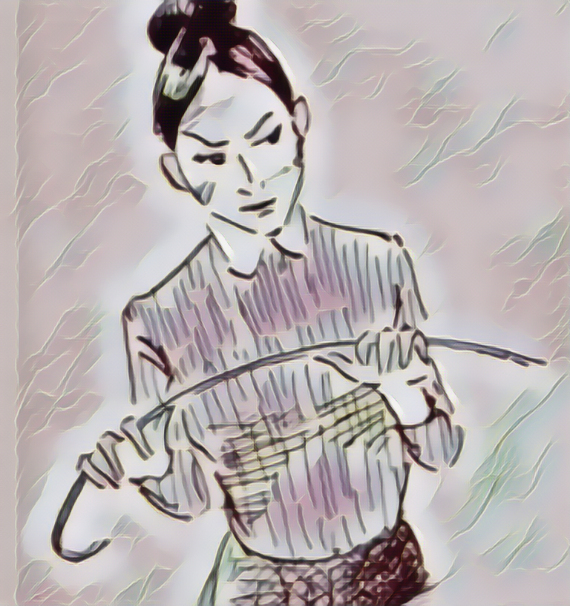When I first began my studies at college, I found myself residing in a quiet apartment building, the sort where the corridors always carried the faint scent of old books and the neighbours greeted one another with polite, knowing nods. Most of the residents were considerably older than I, and I often felt rather like a child pretending to be grown up. My immediate neighbour was Mrs. Patterson, a lady in her late forties, tall and broad-shouldered, with a presence that filled the hallway before she even spoke. She lived with her young son, Aaron, a boy with a mop of unruly hair and a mischievous sparkle in his eye.
Mrs. Patterson’s apartment always seemed to be full of life. The aroma of fresh coffee and newly baked bread would drift beneath her door in the mornings, and Aaron’s laughter—sometimes high and clear, sometimes bubbling—echoed through the thin walls. Mrs. Patterson herself had a brisk, no-nonsense manner, but there was a warmth in her smile that made one feel instantly at home. She had been an elementary school teacher before Aaron was born, and I often wondered what stories she might have from those days. The thought of her as a strict teacher, with her sturdy frame and commanding voice, piqued my curiosity in ways I did not fully understand at the time.
It was not long before I discovered that Mrs. Patterson was, indeed, a firm mother. One afternoon, as I sat at my desk attempting to concentrate on a mountain of college reading, I heard the unmistakable sound of a scolding voice, followed by sharp, rhythmic slaps and Aaron’s cries. The walls seemed to tremble with the intensity of it. I froze, book in hand, listening as the punishment unfolded—each smack punctuated by Aaron’s wails and Mrs. Patterson’s firm, measured words. It became a familiar refrain in the weeks that followed, a reminder that childhood, with all its joys and consequences, was taking place just on the other side of the wall.
I could not help but imagine the scene: Aaron draped over his mother’s lap, his small frame dwarfed by her sturdy build, Mrs. Patterson’s hand rising and falling with practiced precision. The image was vivid in my mind, and after each episode, I would hear Aaron’s muffled sobs, the sound gradually fading as Mrs. Patterson comforted him. There was a peculiar intimacy to it, a ritual that seemed both ancient and deeply personal.
In time, I made an effort to become acquainted with my neighbours. Mrs. Patterson, in particular, intrigued me. We would share coffee in her kitchen, the table cluttered with schoolbooks and half-finished crossword puzzles. Our conversations meandered from the ordinary—weather, groceries, the peculiarities of the building’s plumbing—to more personal topics. One rainy afternoon, as the sound of Aaron’s laughter drifted in from the next room, I gently steered the conversation towards discipline and childhood memories.
Mrs. Patterson hesitated at first, her cheeks colouring as she realised I had overheard more than she intended. But I reassured her, sharing stories of my own upbringing—some true, some perhaps a little embellished for effect. I told her my parents believed in “old-fashioned discipline,” and she relaxed, nodding in understanding. “I only ever punish Aaron for serious matters,” she confided, her voice softening. “Disrespect, untruthfulness, poor marks. I wish for him to grow up knowing right from wrong.”
I pressed a little further, curious about her methods. Mrs. Patterson explained that she usually used her hand, but if Aaron’s misbehaviour was especially grave, she would reach for the belt—a detail that sent a shiver down my spine. She spoke with a kind of resigned authority, as though she had weighed every decision carefully. “It is never easy,” she said, “but sometimes it is necessary.”
Our conversation drifted to her teaching days. Mrs. Patterson’s eyes grew distant as she recalled the classroom, the rows of fidgeting children, the challenges of maintaining order. “The authorities did not permit corporal punishment,” she admitted, “but there were occasions when I had to take matters into my own hands. I always ensured the children understood why. And, truthfully, most of their parents would have done the same at home.” There was a hint of pride in her voice, but also a trace of regret.
Listening to her, I felt a curious mixture of fascination and nervous excitement. The way she spoke—firm, yet caring—made the whole subject feel less like punishment and more like a rite of passage, a lesson in growing up. I found myself drawn to her stories, eager for every detail.
At one point, I must have pressed too far, my questions a little too eager, my interest a little too apparent. Mrs. Patterson’s expression hardened, her lips pressing into a thin line. For a moment, I thought she might ask me to leave, or worse, scold me as she would one of her pupils. But then, with sudden decisiveness, she fixed me with a stern look. “You require dealing with, young man! Be in your apartment at two o’clock this afternoon.”
I left her apartment in a daze, my heart pounding. The remainder of the day passed in a blur. I attempted to distract myself with homework, but my mind kept returning to Mrs. Patterson’s words, the promise—or threat—hanging in the air. I told myself she was merely trying to frighten me, to put me in my place. Still, I found reasons to remain at home that afternoon, glancing nervously at the clock as the minutes ticked by.
Two o’clock came and went. I tried to convince myself it was over, that Mrs. Patterson had forgotten or changed her mind. But then, at twenty minutes past, there was a sharp, commanding knock at my door. I opened it to find Mrs. Patterson standing there, her posture straight, her eyes unwavering. Without waiting for an invitation, she stepped inside, closing the door behind her with a quiet finality. She took my hand—her grip surprisingly gentle—and led me down the hallway to my bedroom.
The room felt smaller with her in it, the air charged with anticipation. Mrs. Patterson sat on the edge of my bed, her back straight, her expression unreadable. “I am here to teach you a lesson, young man,” she said, her voice low but firm. There was no anger in her tone, only a sense of purpose.
She patted her lap, the gesture both inviting and commanding. “Come along, naughty boy, over my knee.” My cheeks burned with embarrassment, but I obeyed, awkwardly positioning myself across her lap. Her hand rested on my back, steadying me, and I felt a strange comfort in her touch. She adjusted my position, ensuring I was secure, then placed her left hand firmly in the small of my back.
(pause) The moment seemed to stretch, as if the very air in the room had thickened. I could hear the faint ticking of the clock on my bedside table, each second marking my humiliation. Mrs. Patterson’s hand, broad and capable, hovered for a moment above my upturned backside. Then, with a swift, practiced motion, she brought it down. The first smack landed with a sharp sting, and I gasped, surprised by the intensity. It was not a mere tap, but a proper, old-fashioned punishment—the sort that left no room for doubt as to the seriousness of my predicament. (short pause) The pain was immediate, blooming across my skin in a hot, prickling wave. Mrs. Patterson’s rhythm was steady, almost metronomic, each smack punctuated by a crisp, admonishing word: “This—will—teach—you—respect.” (pause: 0.3s) I squirmed, mortified by my own helplessness, but her grip was unyielding, her left hand pressing me firmly in place. (pause) The sound of the spanking filled the room—a brisk, echoing report, as if the very walls were bearing witness to my chastisement. My eyes stung with tears, and I bit my lip, determined not to cry out, but the relentless onslaught soon wore down my resolve. (short pause) Mrs. Patterson’s voice, though stern, was never cruel. “You must learn, my boy, that actions have consequences. I will not tolerate cheek or insolence in my home.” (pause) The words, so reminiscent of my own childhood, struck a chord deep within me. (pause: 0.3s) As the spanking continued, the pain built to a crescendo, each smack a lesson written in fire. My legs kicked involuntarily, and I let out a strangled sob, the sound muffled by the bedspread. (pause) At last, Mrs. Patterson paused, her hand resting gently on my back. I was breathless, my face hot with shame and my eyes brimming with tears. (pause) She did not scold me further, but instead rubbed my back in slow, soothing circles, her touch unexpectedly tender. (pause) “There now,” she murmured, her voice softening, “it is over. You have taken your punishment like a proper young man.” (pause) She helped me up, her arms enveloping me in a warm, protective embrace. I could hear her heartbeat, steady and reassuring, and for a moment, I felt like a child again—safe, forgiven, and strangely at peace.
That afternoon marked the beginning of a new chapter in my life. Mrs. Patterson became both neighbour and mentor, guiding me with a firm but caring hand. Over time, she introduced me to the belt, a punishment that left me sore for days but always ended with a comforting hug and words of encouragement. Our bond deepened, built on trust, respect, and a shared understanding of boundaries.
After that, whenever Aaron was at school or out playing, I would sometimes hear that familiar knock on my door. Each visit brought its own lessons, its own challenges, and through it all, Mrs. Patterson remained a steady presence—a reminder that even the hardest lessons can be delivered with love.








